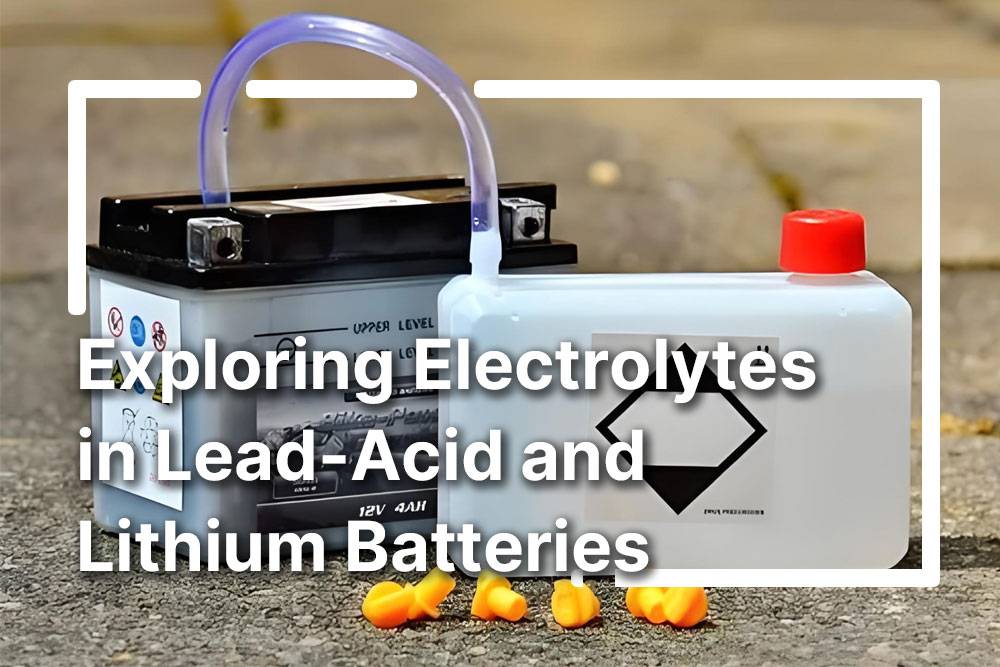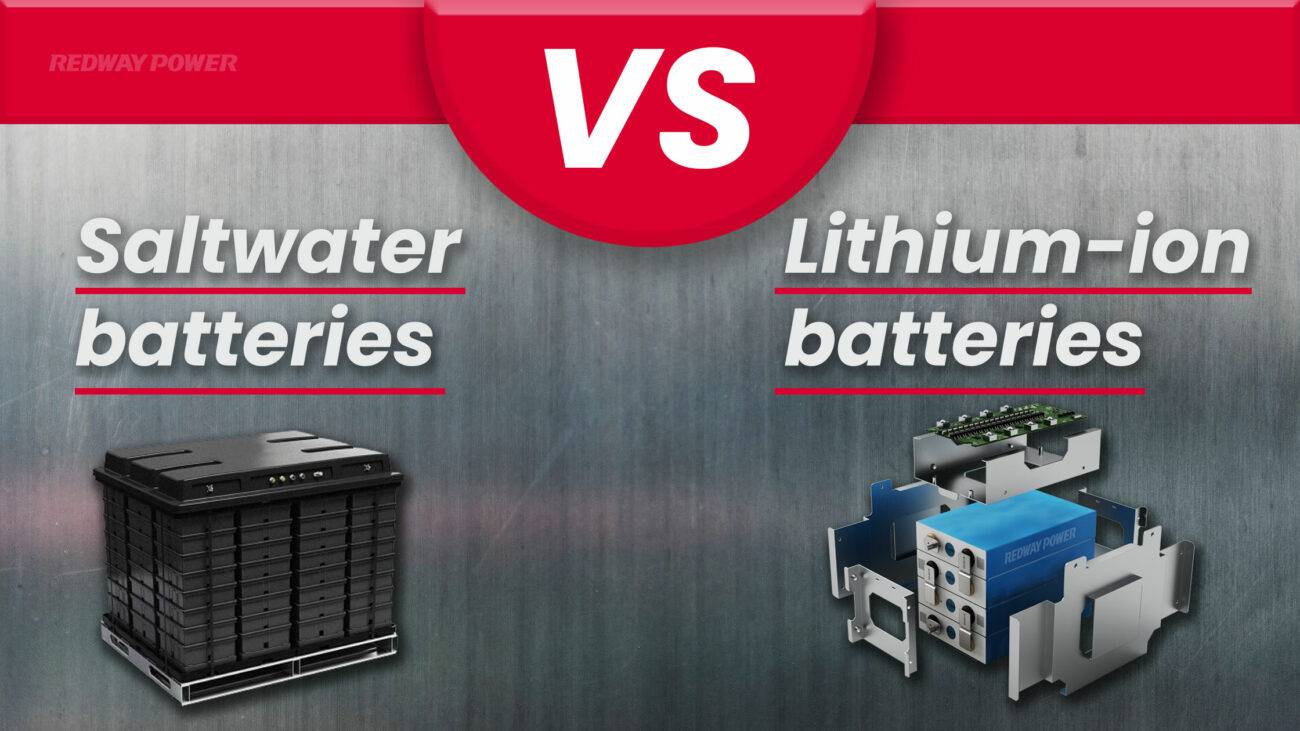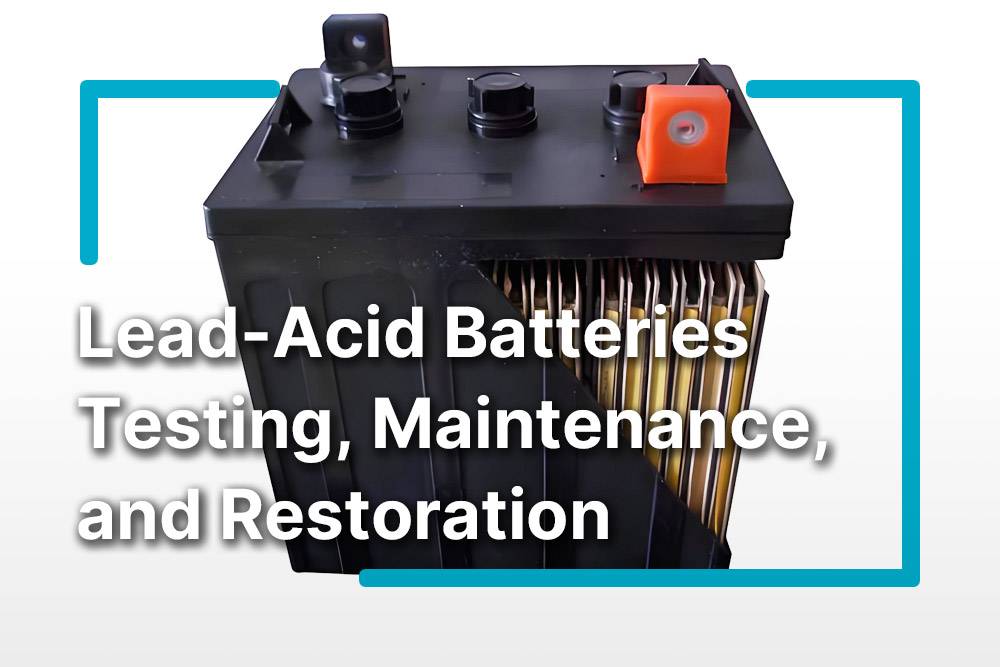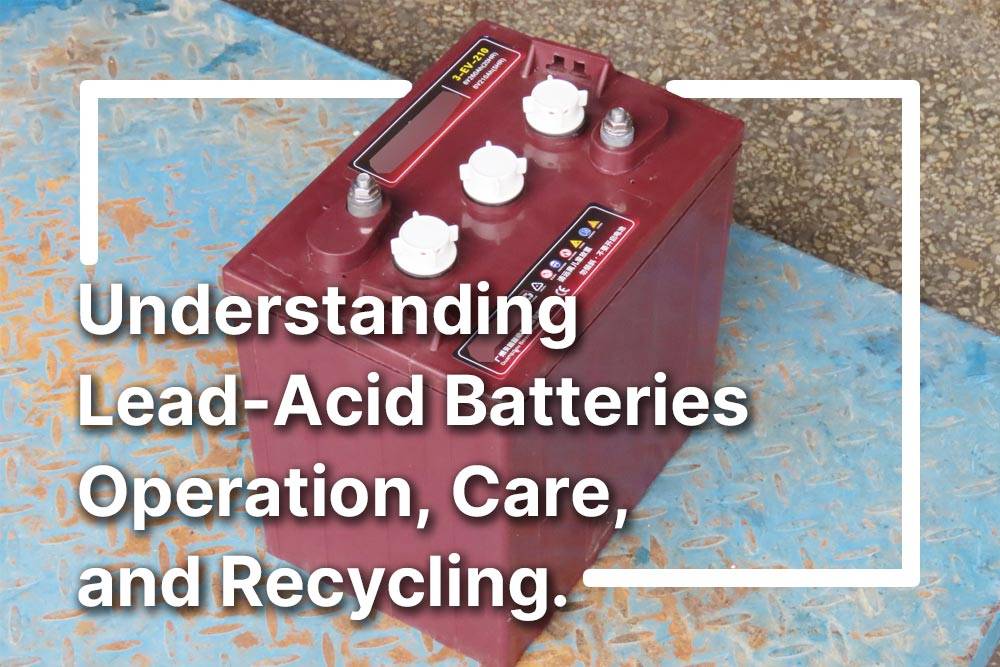Understanding electrolytes’ role in lead-acid and lithium batteries is crucial for battery technology advancement. Selection criteria, composition impact on performance, and innovations like solid electrolytes drive efficiency, reliability, and safety, shaping the future of energy storage.
What are Electrolytes
Understanding electrolytes is essential for comprehending various scientific and practical applications. Let’s explore what electrolytes are and their significance.
- Definition: Electrolytes are substances that conduct electricity when dissolved in water or molten form. They dissociate into ions (charged particles) in solution, allowing electric current to flow.
- Types: Common electrolytes include sodium, potassium, chloride, calcium, and bicarbonate ions. These ions play vital roles in physiological processes, such as nerve signaling and muscle contraction.
- Importance: Electrolytes are crucial for maintaining fluid balance, pH levels, and proper functioning of cells and organs in the human body. They also play key roles in chemical reactions, battery operation, and industrial processes.
Understanding electrolytes helps grasp their significance in various fields, from human physiology to technological applications, highlighting their fundamental role in everyday life.
Types of Electrolytes Used in Batteries
When it comes to batteries, different types use specific electrolytes for their performance. Lead-acid batteries rely on sulfuric acid to conduct electricity between lead plates. Meanwhile, lithium-ion batteries use liquid electrolytes containing lithium salts dissolved in solvents for ion movement. Solid-state electrolytes, like solid polymer ones, offer improved safety and energy density for modern lithium batteries.
Understanding the types of electrolytes used in batteries is important for knowing how they work. Different batteries rely on specific electrolytes to function properly.
- 1. Lead-acid batteries: These batteries, commonly used in cars, use sulfuric acid as their electrolyte. It helps conduct electricity between the lead plates inside the battery, allowing it to charge and discharge efficiently.2. Lithium-ion batteries: In contrast, lithium-ion batteries, found in smartphones and electric vehicles, use liquid electrolytes containing lithium salts dissolved in solvents. These electrolytes enable the movement of lithium ions between the battery’s electrodes, contributing to its energy storage capabilities.3. Solid-state electrolytes: Emerging as a promising option, solid-state electrolytes like solid polymer ones offer improved safety and energy density for modern lithium batteries. They eliminate the need for liquid electrolytes, making batteries safer and more efficient.
In conclusion, understanding the different types of electrolytes used in batteries helps us comprehend how they function and their applications in various devices, from cars to smartphones.
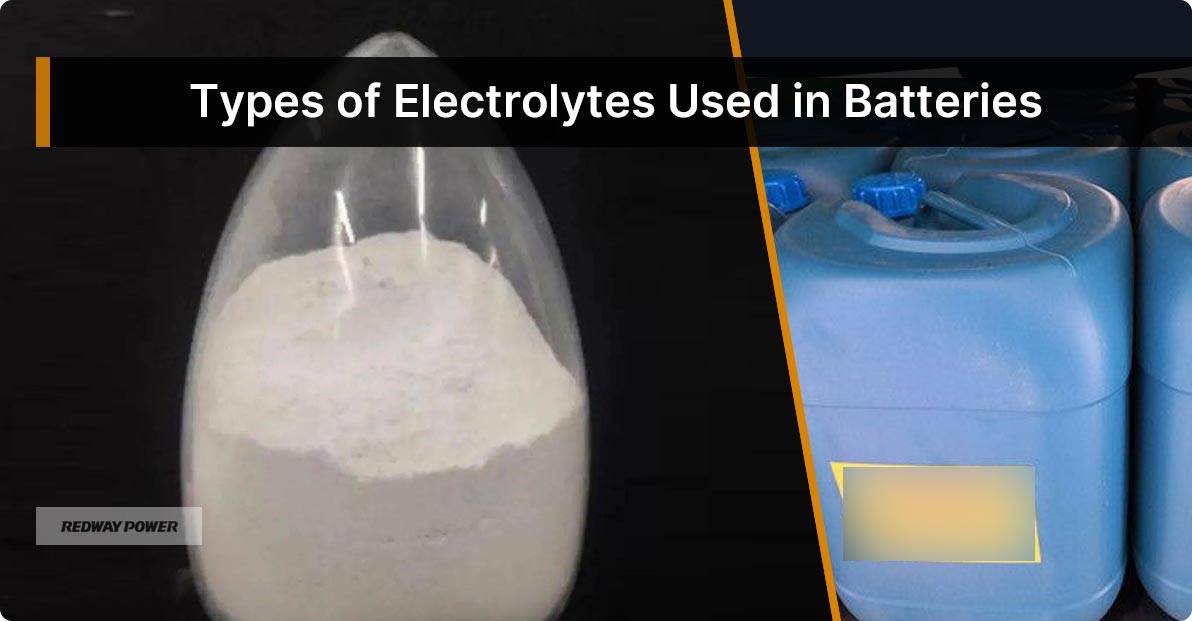
How is the lead storage battery’s typical electrolyte selected?
When choosing electrolytes for lead storage batteries, manufacturers consider sulfuric acid concentration (usually 28-32%) for optimal conductivity and viscosity for proper flow. Compatibility with lead electrodes prevents corrosion. Selection involves evaluating various properties for battery performance.
Choosing the right electrolyte for lead storage batteries is like finding the perfect recipe for baking a cake – every ingredient matters. It’s essential for making sure the battery works properly and lasts a long time.
- Acid Concentration:
- Manufacturers pick sulfuric acid with a concentration between 28-32%.
- This balance ensures the battery conducts electricity well and performs efficiently.
- Viscosity:
- They also check how thick the electrolyte is.
- If it’s too thick, it won’t flow properly in the battery.
- Stability:
- The electrolyte must remain stable over many charge-discharge cycles.
- This stability ensures the battery lasts a long time and works reliably.
Selecting the right electrolyte for lead storage batteries involves considering factors like acid concentration, viscosity, and stability. It’s like finding the perfect blend of ingredients for baking a cake – each component contributes to the battery’s overall performance and longevity.
What effects does battery electrolyte composition have on performance?
Battery electrolyte composition significantly impacts performance. For instance, in lithium-ion batteries, it affects stability and longevity. Additives can enhance conductivity and prevent unwanted reactions. Impurities may cause issues like dendrite formation. Choosing the right composition is crucial for efficiency and durability, whether in electronics or electric vehicles.
Understanding how battery electrolyte composition affects performance is essential for optimizing battery efficiency and lifespan.
- Impact on Stability and Longevity: Different electrolyte compositions affect the stability of lithium-ion batteries. Some formulations enhance stability, contributing to longer battery lifespan.
- Enhanced Conductivity and Prevention of Unwanted Reactions: Additives in electrolyte formulations improve conductivity and prevent undesirable chemical reactions, ensuring better battery performance over time.
- Issues Caused by Impurities: Contaminants in electrolytes can lead to problems like dendrite formation, which reduces battery efficiency and lifespan.
Selecting the right electrolyte composition is critical for achieving optimal battery performance across various applications.
Why are solid electrolytes preferred in lithium batteries?
Solid electrolytes are favored in lithium batteries due to their safety and stability. They reduce leakage and combustion risks compared to liquid ones. Moreover, solid electrolytes enable higher energy density, better performance in extreme conditions, and simpler battery design. With lower internal resistance, they enhance efficiency and prevent short circuits, promising longer battery life.
Solid electrolytes are becoming popular in lithium batteries due to their unique benefits. They offer improved safety, stability, and performance compared to liquid electrolytes. Here’s why they’re preferred:
- Enhanced safety and stability: Solid electrolytes reduce the risk of leakage and combustion, making lithium batteries safer for use in various applications.
- Higher energy density: Compared to liquid electrolytes, solid counterparts enable higher energy density, allowing batteries to store more energy in the same volume.
- Simplified design: Solid electrolytes eliminate the need for a separator, simplifying battery design and manufacturing processes. This leads to cost savings and potentially more reliable batteries.
Solid electrolytes are paving the way for safer, more efficient, and longer-lasting lithium batteries, driving advancements in energy storage technology.
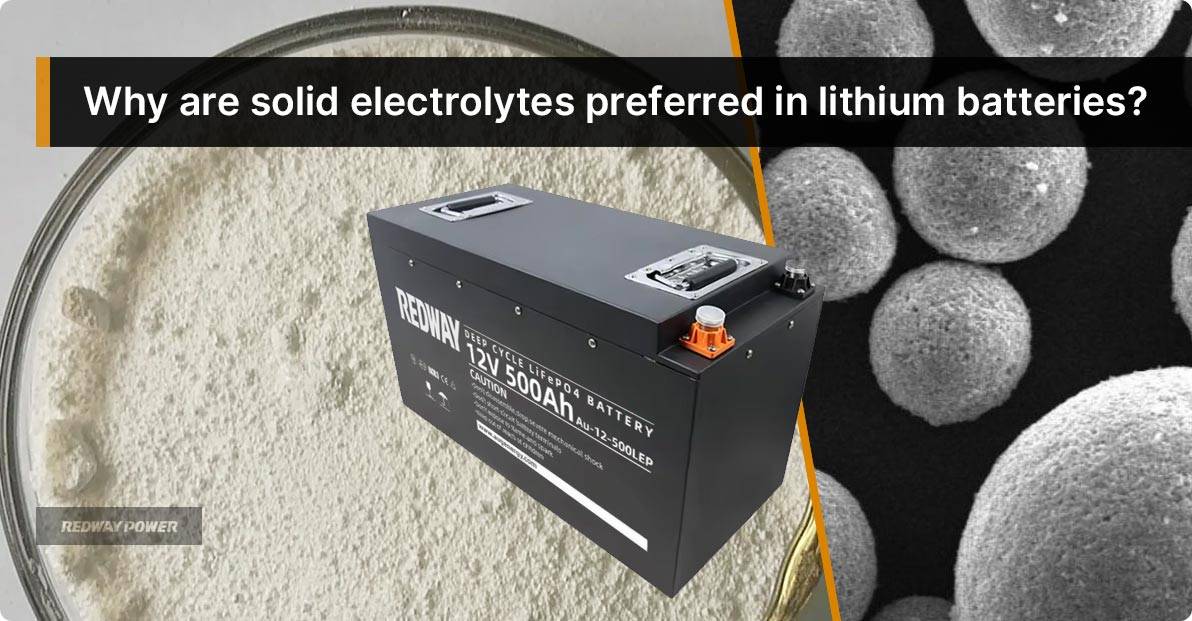
Why do solid polymer electrolytes enhance lithium-ion battery technology?
Why do solid polymer electrolytes enhance lithium-ion battery technology? Solid polymer electrolytes improve battery safety and efficiency, preventing leaks and fires while increasing longevity and performance through enhanced conductivity and durability.
Solid polymer electrolytes are like the safety guards of lithium-ion batteries, making them better and safer. They’re solid, not liquid, so there’s no risk of leaks or fires. Plus, they’re more efficient, meaning batteries can last longer and perform better.
- Safety First: Solid polymer electrolytes are safer than liquid ones. They don’t leak or catch fire, making batteries less risky to use.
- Improved Performance: These solid electrolytes help batteries last longer and work better. They conduct electricity well, so batteries can charge and discharge more efficiently.
- Longer Lifespan: With solid polymer electrolytes, batteries can withstand more charging cycles without losing their capacity. This means they last longer and stay useful for a more extended period.
In summary, solid polymer electrolytes are like the superheroes of battery technology, keeping us safe while making our devices last longer and work better.
What’s the significance of developing electrolyte single-ion conductors for lithium metal batteries?
Developing single-ion conductors for lithium batteries improves safety and performance. These materials help ions move efficiently, reducing the risk of short circuits and extending battery life. With better ion transport, batteries can store more energy and deliver power more effectively, making them ideal for various applications like electric vehicles and portable electronics.
Developing single-ion conductors for lithium batteries is a crucial step forward in battery technology. These materials enhance the movement of ions within batteries, improving their safety and performance.
- Enhanced Safety: Single-ion conductors help prevent short circuits in batteries by facilitating smoother ion movement. This reduces the risk of overheating and potential accidents, making lithium batteries safer to use.
- Improved Performance: With better ion transport, batteries can store more energy and deliver power more efficiently. This enhances the overall performance of lithium batteries, making them suitable for a wide range of applications, from electric vehicles to electronic devices.
- Application Versatility: The development of single-ion conductors expands the versatility of lithium batteries, allowing them to be used in various industries and applications. This includes powering electric vehicles, storing renewable energy, and powering portable electronic devices.
Conclusion: Overall, the development of single-ion conductors represents a significant advancement in lithium battery technology. It enhances safety, improves performance, and broadens the potential applications of lithium batteries across different sectors.
How does the electrolyte function in a lithium-ion battery?
A lithium-ion battery relies on liquid electrolytes to enable the movement of lithium ions between its electrodes. This process stabilizes the electrodes, enhances battery lifespan, and boosts overall performance. The electrolyte serves as one of the battery’s essential components, facilitating its function.
Understanding how a lithium-ion battery works involves knowing about its liquid electrolytes. These electrolytes play a crucial role in the battery’s function by allowing lithium ions to move back and forth between its electrodes.
- Facilitating Ion Movement: Liquid electrolytes enable the movement of lithium ions (Li+) between the battery’s anode and cathode. This movement is essential for the battery to generate electrical energy.
- Stabilizing Electrodes: The electrolyte helps stabilize the surfaces of the anode and cathode within the battery, ensuring smooth ion movement and preventing degradation.
- Enhancing Lifespan and Performance: By stabilizing the electrodes, the electrolyte extends the battery’s lifespan and enhances its overall performance. This results in a longer-lasting and more efficient energy storage solution.
In summary, the liquid electrolyte is a vital component of lithium-ion batteries, allowing them to function effectively and provide the power needed for various applications.
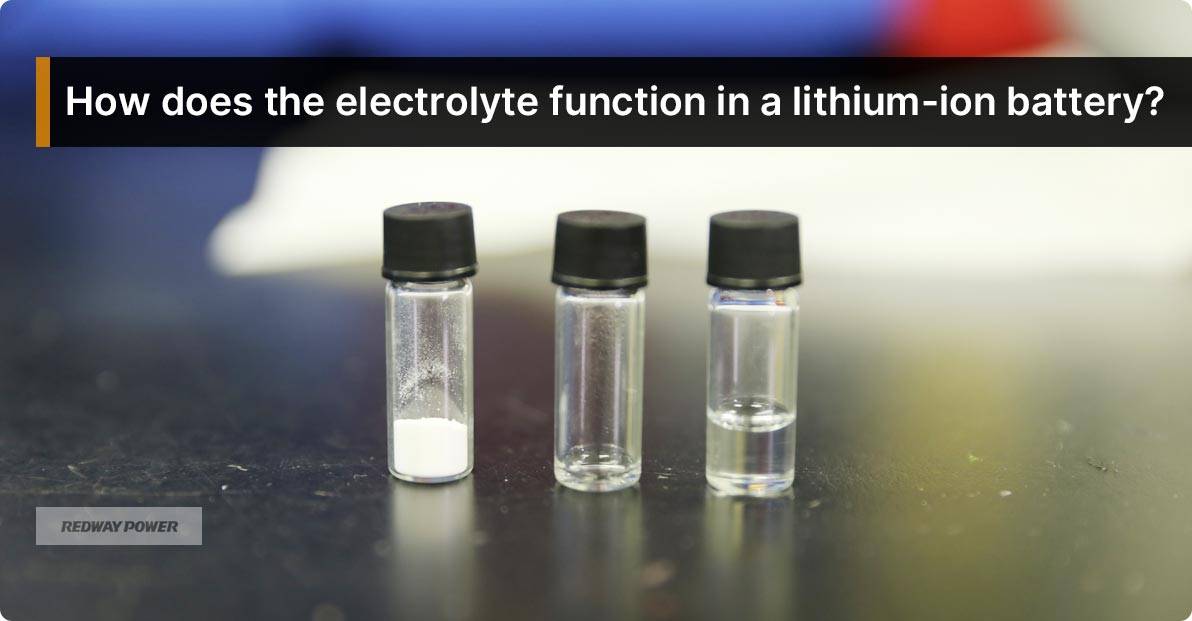
Why address lithium battery electrode corrosion, and how’s aluminum’s impact?
Lithium battery electrode corrosion needs addressing due to its negative effects on battery performance and lifespan. Aluminum helps by forming a protective layer on the electrode, preventing further corrosion and ensuring stable battery operation. Understanding and improving electrolyte composition in lead-acid and lithium batteries, along with exploring solid electrolytes, are vital for advancing battery technology’s efficiency and safety.
Addressing lithium battery electrode corrosion is important for battery performance and longevity. Aluminum plays a vital role in preventing corrosion and ensuring stable battery operation.
- Corrosion Impact: Lithium battery electrode corrosion can lead to capacity loss, reduced efficiency, and safety hazards. It’s crucial to address this issue to maintain battery performance over time.
- Aluminum’s Role: Aluminum helps by forming a protective layer on the electrode surface, preventing further corrosion and ensuring stable battery operation.
- Improving Battery Technology: Understanding electrolyte composition and exploring solid electrolytes are essential for enhancing battery efficiency and safety, driving innovation in energy storage technology. Continued research in this area is vital for sustainable and high-performing batteries.

